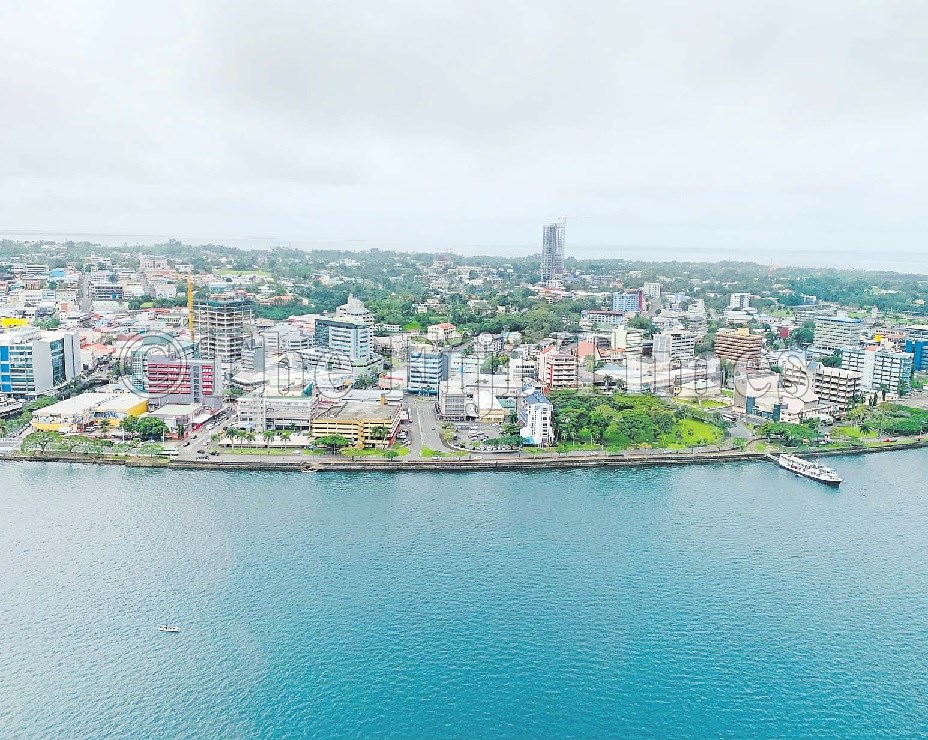THE recovery of the domestic economy is anticipated to be gradual because of uncertainty surrounding the post-COVID-19 environment and the resulting new norm.
Recently the World Bank Group released its 2021-2024 Country Partnership Framework for Fiji which will look at two focus areas over the next four years — fostering private sector-led growth and inclusive economic opportunities — creating investment and business opportunities; more jobs; improved access to finance; boosting the tourism and agriculture sectors; as well as better infrastructure, digital services and more clean energy.
IFC resident representative in Fiji, Kiribati, Samoa, Tonga and Tuvalu, Deva De Silva said from their global experience they believed private sector solutions would be essential to help stimulate the economy and recover from the impacts of COVID-19 and natural disasters such as TC Harold and TC Yasa.
Mr De Silva said IFC assisted the Fijian government conduct a survey on the impact of the pandemic on Fijian businesses in May last year to be able to better understand the needs of the private sector to continue their operations.
With the support of the Australian and New Zealand governments, IFC is mobilising more than $US300 million ($F614.9m) from the private sector to help finance development projects including in the areas of healthcare, renewable energy and affordable housing.
Mr De Silva said their work in Fiji was supported by the Australian and New Zealand governments through the Fiji Partnership with the IFC been able to lay important groundwork for investment opportunities through the Fiji Partnership.
According to Mr De Silva their focus would help restore and create jobs in the short term and put Fiji’s economy on a stronger footing in the longer term.
In response to questions on details of how the funds would be mobilised, Mr De Silva said while COVID-19 had impacted the Fijian economy, it had also created opportunities in some sectors such as business process outsourcing.
Fiji has been seen as a good choice for BPO considering its skilled labour force, neutral accent and low cost structure.
Mr De Silva said to help drive more private sector solutions and investment, IFC would put the foundations in place for future transactions —and where possible use its unique sources of finance to help offset risks and other impediments, to support private sector investment.
Meanwhile the framework will also focus on building resilience and support to help Fiji gain access to funds both before and after a disaster strikes; improve emergency planning and increase resilient infrastructure; protect the environment and develop a sustainable Blue Economy; strengthen community resilience to climate and public health emergencies; and provide social assistance to help families and businesses that are in critical need.
“We are working with the Reserve Bank of Fiji to improve the country’s payment systems. As the pandemic recedes, more financing options, including the expansion of the use of financial technology to improve access to finance, together with deeper capital markets — will be needed to modernise Fiji’s financial infrastructure and make it more competitive.
“The absence of an effective and efficient national payment system at this time of economic challenges for Fiji means its financial institutions are not able to offer innovative, affordable and accessible products and services to many Fijians. This translates into the exclusion of an estimated one-third of adults from the formal financial sector,” he said.
“And we are also working with the Fijian Government with its investment law, aimed at improving investment conditions in the country.
“Gender equality is critical to us and we are working with the private sector to respond to the impacts of domestic and sexual violence in their workplaces as well as encouraging private sector solutions to address the lack of childcare policies.
“Two thirds of companies in Fiji who were surveyed by IFC and the Fiji Human Resources Institute (FHRI) on the impact of COVID-19 believe the pandemic has increased employees’ experiences of domestic and sexual violence.”
In its bid to assist Fiji in its path to economic recovery and to fulfill the Fiji Partnership, the IFC is also working with the government to help Fiji reach its target of 100 per cent renewable energy-based electricity generation by 2030.
“Our October 2020 agreement with Energy Fiji Ltd (EFL) for the Pacific’s largest solar project worth around $US15m ($F30.7m) on independent power producer terms, has the potential to transition as many as 14,000 households to renewable
energy.
“The aim is to structure this transaction so, once completed, much of it can be easily replicated by EFL and other Pacific nations, making it easier for them to create bankable renewable energy deals attractive to the private sector.”
Meanwhile the World Bank will be programming more than $US210m ($F430.4m) to support implementation of the strategy – most of it on highly concessional terms under the small islands economies exception.






